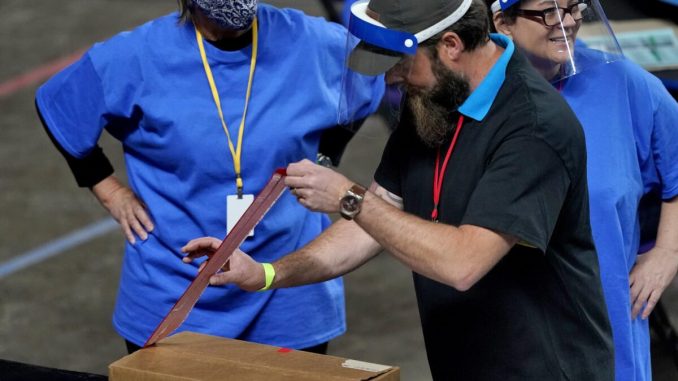
Arizona’s Senate president on Friday told the U.S. Department of Justice (DOJ) that the 2020 election audit taking place in Phoenix is protected by “thorough protocols.”
“After some early and well publicized challenges, the security protocols at the audit site have been made very strong,” Arizona Senate President Karen Fann, a Republican, told Pamela Karlan, a DOJ official, in a letter.
The roughly 2.1 million ballots cast in Maricopa County in the presidential election, along with tabulators and other equipment used last year, are subject to continuous video surveillance, which is live streamed to the general public online, and being watched by armed personnel 24 hours a day. Additionally, every entrance to the Veterans Memorial Coliseum, where the audit is taking place, is locked and manned by guards, with an additional guard posted adjacent to the area in which the ballots are stored.
“All ballot review and processing occurs within the confines of a carefully documented chain of custody and, from the moment the counting began, all audit team members and observers alike have been strictly prohibited from bringing into the demarcated ballot processing area any electronic device or any instrument (e.g., a blue or black ink pen) that could be used to spoliate ballots,” Fann wrote.
“More to the point, not a single ballot or other official election document has been destroyed, defaced, lost, or adulterated during the course of the audit, and we are confident that our strong security infrastructure has minimized to the greatest extent feasible the risk of any such breaches in the future. We are unaware of any significant security breach since the day the ballots were delivered; this is undoubtedly due to the thorough protocols implemented since that time.”
The Arizona Senate ordered the expansive forensic audit after the 2020 election. Fann has said the body wanted to “to bring integrity to the election process.”
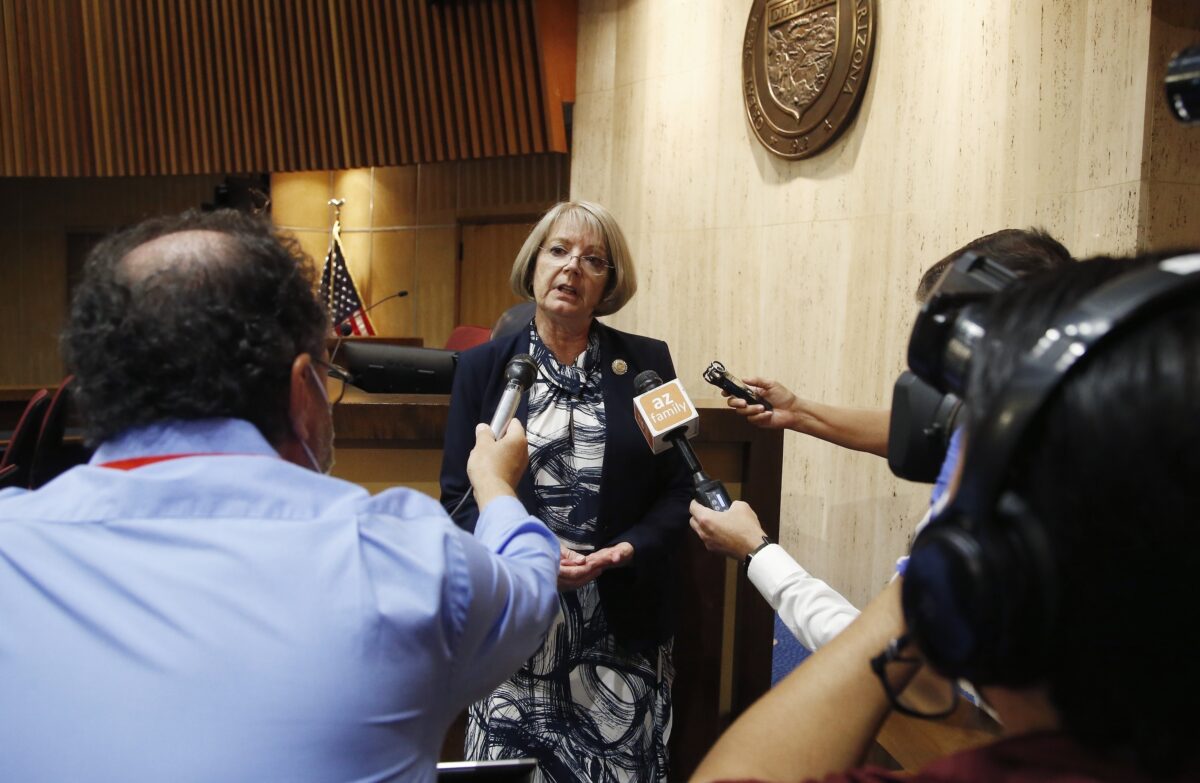
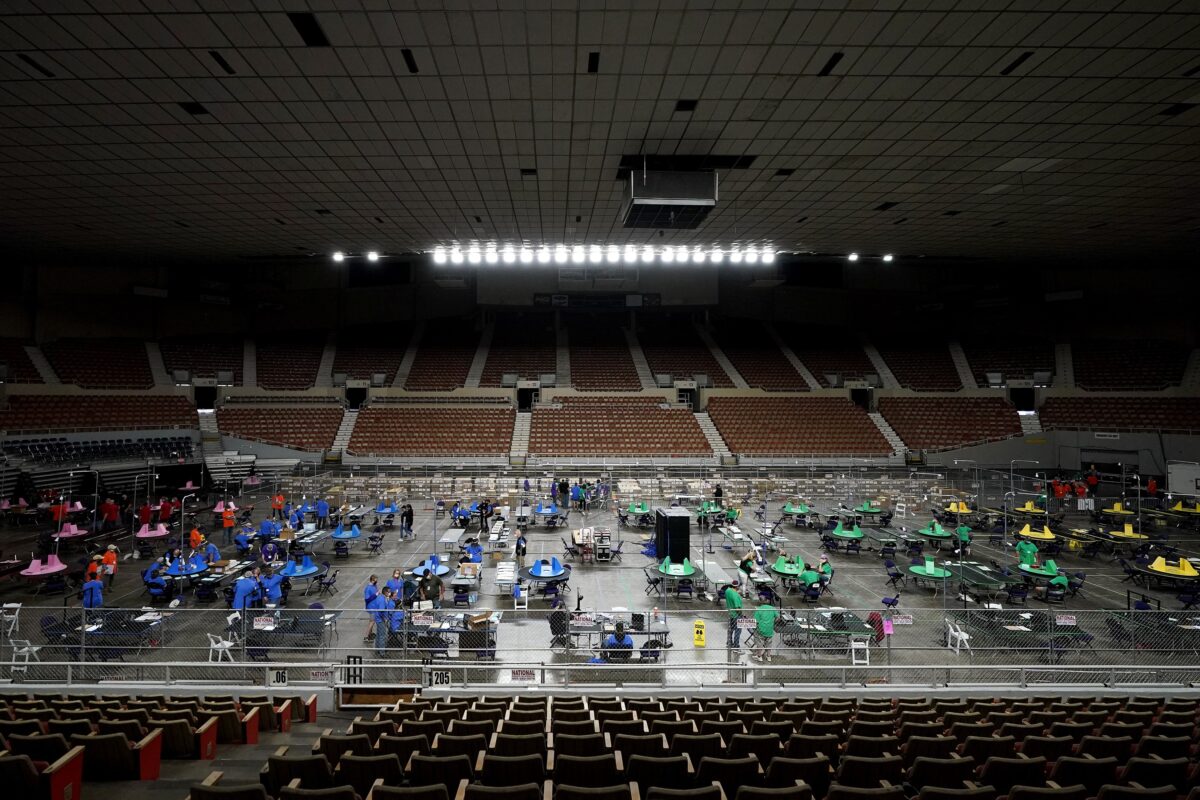
The audit started in late April and is due to continue until mid-May, if not later.
Democrats in the state have alleged the auditors may be violating state and federal law and attempted to block the audit, but were turned down by a judge over a lack of evidence.
Karlan, principal deputy assistant attorney general with the DOJ’s Civil Rights Division, also raised concerns earlier in the week in a letter to Fann. She pointed to several news reports that alleged ballots, elections systems, and election materials were “not being adequately safeguarded by contractors at an insecure facility, and are at risk of being lost, stolen, altered, compromised, or destroyed.”
One article was based on a video from a local news channel, while two others were published in the early months of the year, before the audit began.
Karlan also challenged a plan by Cyber Ninjas, the company leading the audit for the state Senate, to verify the validity of certain voter registrations with questionable addresses by dispatching people to verify whether the voter lived at the address on the registrations. Such an effort could constitute voter intimidation, according to Karlan.
Fann said in the new letter that the Senate determined several weeks ago that the voter verification aspect would be indefinitely deferred.
“If and to the extent the Senate subsequently decides that canvassing is necessary to the successful completion of the audit, its vendor will implement detailed requirements to ensure that the canvassing is conducted in a manner that complies fully with the commands of the United States Constitution and federal and state civil rights laws,” she said.
Former Arizona Secretary of State Ken Bennett, a Republican who the state Senate appointed as a liaison for the audit, said at the audit site on Friday that he was not in on the decision.
Ivan Pentchoukov contributed to this report.


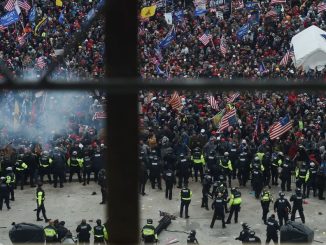
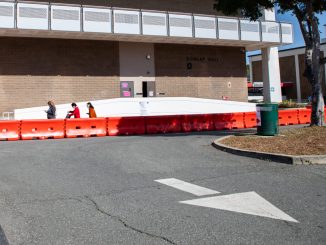
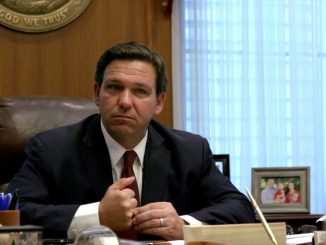
Be the first to comment